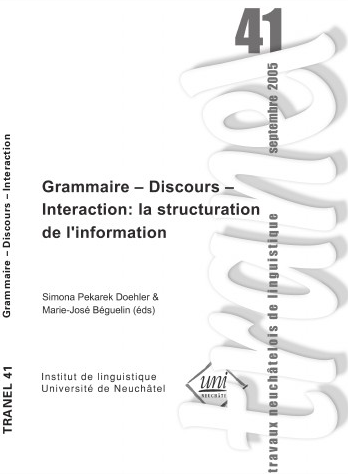Introduction et maintien des référents chez les enfants: rôle de la connaissance partagée
DOI :
https://doi.org/10.26034/tranel.2005.2703Résumé
Discourse cohesion is an important aspect of the development of discourse capacities. This paper focuses in particular on the influence of shared knowledge on referent introduction and reference maintenance. The discussion is based on first results of a research program on developmental pragmatics. The children (from 4 to 11 years old) have to tell a story (about two male characters who differ by the actions they do) to an interlocutor who knows it (called «informed interlocutor») and to another one who does not (called «non informed interlocutor»). Examples show that children are not able before the age of six to introduce referents appropriately and to maintain reference without ambiguity. They don’t take into account the difference between the two discourse conditions. Children with specific language impairment have the same difficulties, but they subsist at an older age. They show also specifities in the manner they construct their utterances.Téléchargements
Publié-e
01-09-2005
Comment citer
Weck, G. de. (2005). Introduction et maintien des référents chez les enfants: rôle de la connaissance partagée. Travaux neuchâtelois De Linguistique, (41), 33–48. https://doi.org/10.26034/tranel.2005.2703
Numéro
Rubrique
Article thématique


